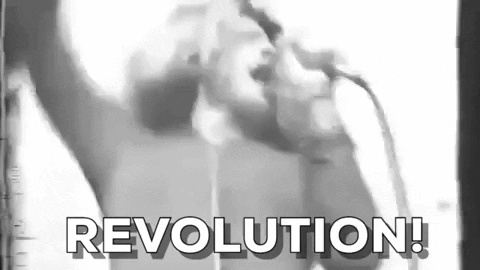🥄 Gwyth’s Pick: Get a Life, Chloe Brown—A Spoonie Rom-Com with Sharp Wit and Soft Hearts by Talia Hibbert
Keywords: Get a Life Chloe Brown book review, romance novels with chronic illness, Black disabled romance protagonist, neurodivergent Black heroine, inclusive romantic comedy books, enemies to lovers chronic illness, best romance books with disability representation, fibromyalgia love story
A tender, funny, deeply validating love story for the chronically ill, the chronically guarded, and the chronically delightful
Subgenre: Contemporary Romance / Romantic Comedy / Chronic Illness Representation
Rating: ★★★★½ (4.5 out of 5 glittering stars, wrapped in a cozy blanket and carrying a to-do list labeled “Find Joy”)
My dear storybuff,
You know how sometimes you don’t realize how hungry you were for a particular kind of story until someone puts a plate in front of you and it tastes like care, recognition, and just the right amount of flirt?
That’s what Get a Life, Chloe Brown was for me.
It’s the kind of book I wish I’d had years ago—when my pain was new and loud, when I was trying to hold it together with sarcasm, spreadsheets, and sheer spite. It’s also the kind of story I’m so glad exists now—for every disabled Black girl who wants to be loved loudly and on purpose.
Talia Hibbert gives us a heroine who’s sharp, soft, skeptical, and stunning—and she gets to fall in love without being "fixed." That alone? Revolutionary.

💫 So, What’s It About?
Chloe Brown nearly dies and does what any of us would: she makes a color-coded list.
After years of shrinking her life to fit her pain, she decides it’s time to get one—a life that is. With fibromyalgia as an ever-present (and realistically portrayed) companion, Chloe sets out to reclaim joy and maybe a little chaos. Enter Redford “Red” Morgan, her superintendent: gruff, tattooed, emotionally scarred, and blessed with the kind of hair you want to run your fingers through and write a poem about.
Their dynamic starts off prickly—deliciously so. But underneath the snark and simmer is a love story about trust, tenderness, and the bravery of letting someone see you as you are.
🧠 Why This Book Spoke to My Body and My Bones
👩🏾🦱 A Disabled Black Heroine Who Isn’t Inspirational—She’s Real
Chloe Brown has fibromyalgia, and she’s not here to be your object lesson. She’s clever, cautious, and sometimes deeply tired—and she still flirts like a champ. Hibbert writes her chronic pain with such nuance and humor that I felt like I was reading fragments of my own life: the meticulous self-monitoring, the internal monologues at war with the body, the fierce tenderness of knowing your limits and enforcing them.
She doesn’t get a new lease on life because she’s “brave”—she claims it because she deserves it. No caveats. No cures.
🎨 The Love Interest Is a Whole Person, Not a Plot Device
Red is the cinnamon roll with muscles trope we all deserve, but he’s also working through trauma. After surviving an emotionally abusive relationship that left him doubting his instincts and art, he’s cautiously rebuilding—his confidence, his career, and his trust in others.
Watching Red and Chloe learn to care for one another without losing themselves in the process? That’s the kind of romance that makes my poet heart ache in the best way.
💬 Banter, Boundaries, and British Flirtation
The dialogue sparkles. Their enemies-to-lovers arc is textured, messy, and oh-so-earnest. The banter doesn’t just serve as cute filler—it becomes the way these two fiercely private people test the waters, build intimacy, and navigate their trauma without turning it into spectacle.
Also: Chloe’s insults are high art. If you’ve ever weaponized politeness to keep someone at bay while secretly hoping they stay, you’ll find her extremely relatable.
☕ What Could’ve Steeped a Bit Longer
- The pacing dips slightly during the third-act conflict. I wanted just a few more breaths between hurt and healing to let the emotional beats land more fully.
- The romance escalates a little quickly once the spark catches—so if you’re someone who lives for the slowest of slow burns, this might feel a bit fast. But honestly? The emotional groundwork is solid, and the payoff is worth it.
🚨 Content Considerations (Handled With Care)
Moderate:
- Chronic illness and persistent pain (fibromyalgia)
- Emotional abuse in a past relationship (discussed, not shown)
- Medical gaslighting and ableism (brief but familiar)
- Fatphobia (implied, mostly challenged by tone/plot)
Mild:
- PTSD/anxiety responses
- Grief after a near-death experience
Hibbert never exploits these for plot drama. Every challenge is framed with care and emotional safety—like being held, not exposed.
🌠 You’ll Fall In Love With This If You…
- Crave romance novels that center disabled joy instead of disabled pity
- Are building a life with chronic illness, one hard-won joy at a time
- Want to see boundaries treated as sexy, necessary, and sacred
- Adore slow-ish burns with actual conversations and vulnerable growth
- Loved Emily Henry or Helen Hoang but wish they included more Black girls with joint pain and emotional armor
- Think spoonies deserve kissing, too (we really do)
💫 Final Thoughts: Chloe Brown Doesn’t Just Get a Life—She Creates Room For Ours
Reading Get a Life, Chloe Brown felt like someone whispering, “You get to have this too.” Romance. Humor. Rest. Rage. Softness. Desire. Community. Even when your body won’t cooperate. Even when you’re exhausted, protective, and out of spoons.
This book reminded me that we don’t have to be healed to be whole. We don’t need to be “easier” to be loved. And our softness? It’s not a flaw—it’s a language.
So bring your tea, your heating pad, and that part of your heart that wants to believe in softness again. Chloe Brown has room for you.
With warmth and maybe a little ache,
D.V. Gwyth
